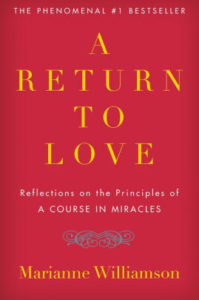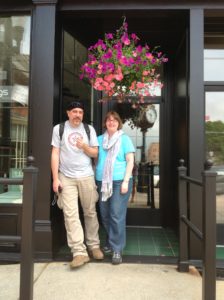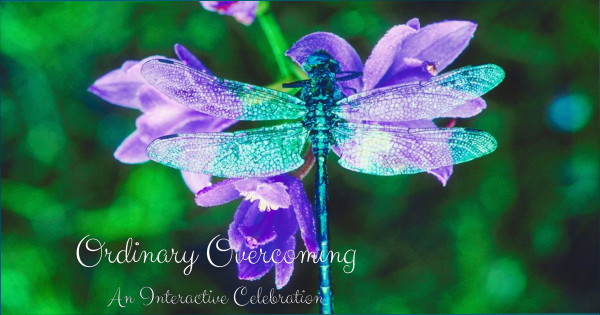When I was young, I thought all friends were ‘for life.’ Why would anyone ever want to finish a friendship? So it struck me particularly hard over the years when friendships did finish. Then I came to realize—and really accept— three things. The first is the truth in the saying about friends coming into our lives for ‘a reason, a season or a lifetime.’ The second is if a friendship looks like it’s ending, but I don’t fight for it, there’s a reason why I’m allowing it to finish. Last, when I’ve (truly) scoured my conscience yet remain baffled as to ‘what happened’ the best answer is: it’s probably not about me.
The ‘reason, season, or lifetime’ scenarios. I’ve often found when ‘reason and season’ friendships are reviewed backwards, once they’re over, there’s a big lesson left behind. Their gift. A woman I met in my early years in New Zealand comes to mind. I’ll call her Jackie. We met while hiking a stunningly beautiful native bird sanctuary called Kapiti Island.
 After finding we lived a suburb or two apart back in Wellington, we started seeing movies together and going out in groups with, mostly, her friends as I knew very few people yet. This was an acutely lonely, transitional phase for me, making my new life from scratch in a country on the other side of the world from my own, with only a new boyfriend, Sam (who lived five hours north of where I’d found work), but otherwise no family, friends, or history. Even as I’m typing these words, it occurs to me: just meeting someone who is nice doesn’t mean a friendship will, or even should, develop (I’d learn this about Sam, too, but that’s another topic). Besides liking nature and movies, it turned out Jackie and I had very little in common. When the invitations to get together started to slow and she declined mine more often than not, I looked at why. Sure, I reasoned, we only shared a few interests, but there were degrees of friendship and sticking with movies and hikes still would have been fun.
After finding we lived a suburb or two apart back in Wellington, we started seeing movies together and going out in groups with, mostly, her friends as I knew very few people yet. This was an acutely lonely, transitional phase for me, making my new life from scratch in a country on the other side of the world from my own, with only a new boyfriend, Sam (who lived five hours north of where I’d found work), but otherwise no family, friends, or history. Even as I’m typing these words, it occurs to me: just meeting someone who is nice doesn’t mean a friendship will, or even should, develop (I’d learn this about Sam, too, but that’s another topic). Besides liking nature and movies, it turned out Jackie and I had very little in common. When the invitations to get together started to slow and she declined mine more often than not, I looked at why. Sure, I reasoned, we only shared a few interests, but there were degrees of friendship and sticking with movies and hikes still would have been fun.
So, here’s the lesson: I wasn’t fun. I was actually probably a bit of a downer! I was helped to this painful truth through a book by Marianne Williamson. I found her wisdom invaluable and very timely at that phase of my life. If you find the religious wording off-putting, don’t worry—for me she served as the friend who  gives it you straight even if it’s hard to hear.
gives it you straight even if it’s hard to hear.
So, as Jackie gradually, then completely, pulled away from me, I recognized the likely reason why she wasn’t interested in spending time together: as kind as she was, she didn’t want, or need, to cultivate a new friend who brought little to the relationship.
Jackie was a ‘reason’ friend. Through her, I gained painful, but necessary, insight. For that, and for the company and fun we did share while my life was relatively empty, I’m grateful to have known her.
The friendship I didn’t fight to keep. The other day I read a New York Times piece that reiterated old advice from Derek Sivers—advice you might have heard along the way. To paraphrase Sivers’ philosophy, we ought to save our precious time and energy for that which we are really passionate about and to say ‘no’ to anything for which we are unable to yell: ‘Hell, yeah!’
It goes without saying there’s a list as long as my arm of things we can’t just refuse to do because they don’t excite us and most people don’t often have the luxury of that choice. Who we socialize with, however, is (usually) our choice and makes a great deal of difference to our lives if you accept what motivational speaker Jim Rohn famously said:
“You’re the average of the five people you spend the most time with.”
The NYT piece brought to mind a former ‘hell yeah!’ friend; I’ll call her Shelly. The friendship started on a high with lots of laughter, confiding, coffee dates, and shared projects, yet, even in the earliest months I noticed Shelly sometimes seemed casual with the truth. When it came to making excuses to others, creating a resume, presenting how she felt about a topic or person there were discrepancies and flip-flops. I felt increasingly uncomfortable … why the hiding and pretending? Where’s the real Shelly? I had no clue how to address the issue. Ultimately, when we encountered what should have been a hiccup in our friendship and she again chose to ‘decorate the truth,’ I realized it wasn’t my issue to address. Like most people, I value truth and honesty above all else. In a great blog for Psychology Today, Suzanne Degges-White discussed these as ‘traits of integrity’ among the top 5 “make or break elements in any interpersonal relationship.”
Not brutal honesty, kind honesty, from friends you can trust and not wonder about, knowing the foundation is there and you can be who you are, while they do the same. Those are the wonderful, gritty ‘hell yeahs!’ you work with (even argue with) to make it past hurt feelings or an occasional misunderstanding and come out sailing. I get why I wasn’t Jackie’s ‘hell yeah.’ I can look back at that time with a grin but, honestly? Groucho Marx summed up how I felt about myself in those days with his ‘ouch-inducing’ quip: “I wouldn’t belong to a club that would have me for a  member.” With life now as busy as I like it, and often more so, it’s not as painful as it might once have been, to walk away from a former ‘hell yeah.’ Maybe Shelly was a season.
member.” With life now as busy as I like it, and often more so, it’s not as painful as it might once have been, to walk away from a former ‘hell yeah.’ Maybe Shelly was a season.
When you know ‘it’s not about me.’ In the end, the whole thing with Shelly came down to knowing what is my stuff and what isn’t. This still isn’t automatic for me. Even in our hiccup, I was ready to ‘wear it’ and agree with her assessment of me being the one in the wrong. That’s still my default. Then I looked more objectively and saw the manipulation—as well as an outright lie—in her response.
In a 2016 column, Amy Dickinson from the Chicago Tribune wrote: “Disengaging from someone who doesn’t demonstrate that he cares about you should not bother you. It should feel good. If it doesn’t feel like a relief, then don’t do it.” The question she’d addressed had to do with a continuously rude, self-absorbed sibling, but you can just as accurately insert ‘friend’ in her answer: “With adult siblings, a level of acceptance should accompany this disengagement. You tell yourself, ‘My sibling is like this. I can’t change him. But I don’t need to welcome it into my own life.’ Accept this unfortunate reality. And then withdraw.”
Sounds an awful lot like emotional maturity—something I expect Jackie had early in life and something I cherish in my dearest friends, particularly Bob (to new readers: Bob is my nickname for my husband).
 Those friends we hope to have for a lifetime. I’m happy knowing, as Aimee Groth points out, our friends’ greatly influence “our way of thinking, our self-esteem, and our decisions.” Jim Rohn’s quote (re: the five people) is the title of Ms.
Those friends we hope to have for a lifetime. I’m happy knowing, as Aimee Groth points out, our friends’ greatly influence “our way of thinking, our self-esteem, and our decisions.” Jim Rohn’s quote (re: the five people) is the title of Ms.  Groth’s 2012 Business Insider article in which she notes there’s a definite place for our critics, the envious and the doubters, without whom we’d never grow. Honest friends blunt some of the growing pain while we develop our own thicker skin. And while they don’t withhold the tough feedback, they give it with love.
Groth’s 2012 Business Insider article in which she notes there’s a definite place for our critics, the envious and the doubters, without whom we’d never grow. Honest friends blunt some of the growing pain while we develop our own thicker skin. And while they don’t withhold the tough feedback, they give it with love.
I feel extremely lucky for the new and old friends here, and in New Zealand, who show signs of being lifers. It’s been priceless reconnecting with several ‘old gold friends’ after being in New Zealand for so long. Though I’m still not able to see many of them often, just knowing they’re in the world makes it such a richer place. Meet a few of them here. And please, I’d love to read your comments and your stories about farewells to friends. 




 Update: According to a 2021 article in ideas.ted.com, its kinda goofy (my words) that we automatically presume friendships will last as soon as we determine we like each other although with a romantic relationship we wonder ‘is this the one? Will this last?” How to get over a friendship breakup | (ted.com)
Update: According to a 2021 article in ideas.ted.com, its kinda goofy (my words) that we automatically presume friendships will last as soon as we determine we like each other although with a romantic relationship we wonder ‘is this the one? Will this last?” How to get over a friendship breakup | (ted.com)

